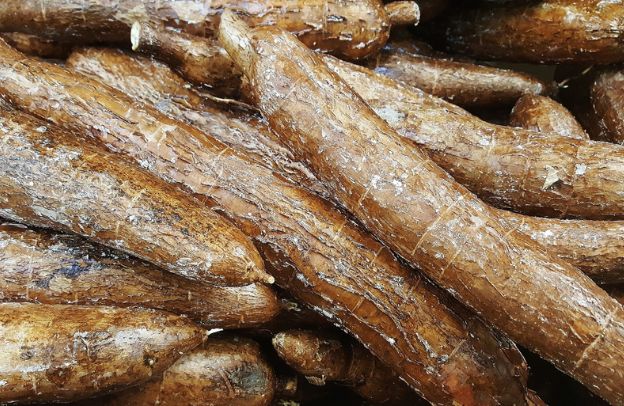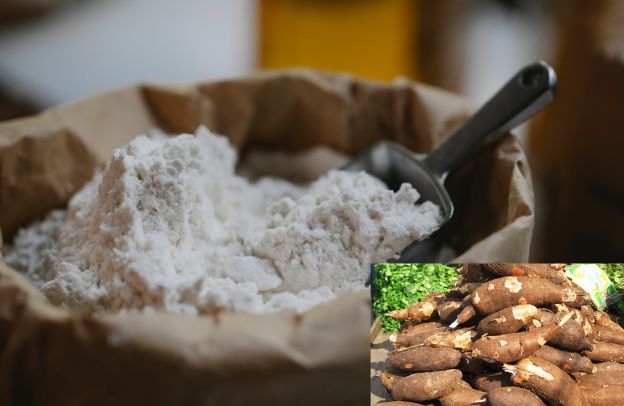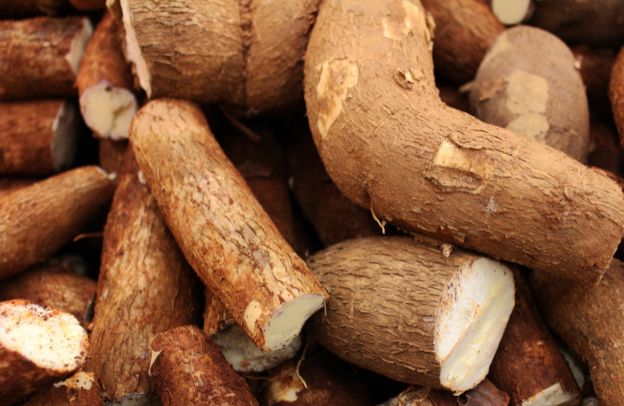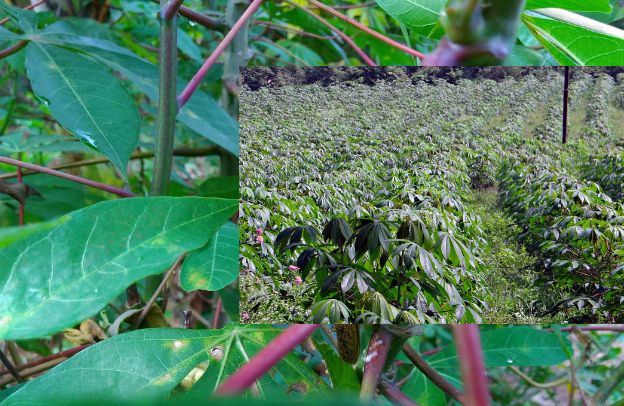Unleashing Nigeria’s Agricultural and Agribusiness Potential: A Call to the African Diaspora

Have you ever wondered why Nigeria, blessed with vast arable land, a tropical climate, and a dynamic entrepreneurial spirit, still struggles with food insecurity and unemployment? Why does Africa, which boasts 65% of the world’s uncultivated arable land (AfDB, 2022), continue to import billions of dollars in food annually?
Take your Business Storytelling to the next level through our Story To Asset Transformation Framework.
Unlocking Nigeria’s Agricultural Potential: A Call to the African Diaspora
Nigeria’s agricultural sector is an underutilized powerhouse brimming with opportunity. For African diaspora entrepreneurs, this is more than just an investment, it’s a chance to drive economic transformation, create jobs, and enhance food security while building sustainable wealth.
Nigeria’s Economic Sectors: A Breakdown of GDP Contribution
According to Statista, Nigeria’s 2023 GDP was distributed as follows:
- Services (42.77%) – The largest contributor, driven by IT, banking, and travel.
- Industry (32.58%) – Encompassing manufacturing, construction, and resource extraction.
- Agriculture (22.72%) – Covering farming, forestry, and fishing, and remaining essential for employment and food security.
The Structure of Nigeria’s Economy
Nigeria’s economy is structured into three key sectors: the primary, secondary, and tertiary sectors. The primary sector, which includes agriculture, forestry, and fishing, plays a crucial role in providing rural employment and producing raw materials.
The secondary sector focuses on industry and manufacturing, where raw materials are processed into finished goods, including food processing and oil refining.
Meanwhile, the tertiary sector, the fastest-growing segment, covers services such as finance, telecommunications, and travel, which contribute significantly to the country’s economic development.
Agribusiness: A Missed Opportunity with Massive Potential
Despite agriculture’s critical role in Nigeria’s economy, the sector remains underdeveloped, relying on smallholder farmers who face outdated farming practices, limited financing, and poor infrastructure.
With the right investments in modern farming, agro-processing, and supply chain improvements, Nigeria can transition from a food-importing nation to a leading agricultural exporter.
How the African Diaspora Can Lead the Change
For those in the African diaspora seeking meaningful investment opportunities, agribusiness offers a high-impact, high-reward avenue. Whether through cassava processing, rice production, livestock farming, or agritech innovations, diaspora investors can play a pivotal role in unlocking Nigeria’s agricultural potential while securing long-term financial returns.
This article explores practical ways you can invest in Nigeria’s agribusiness sector, create wealth, and contribute to food security across the continent.
See also: Cassava Farming: A Gateway to Profitable Agribusiness for the African Diaspora
Nigeria’s Agricultural Landscape
Nigeria’s Untapped Agricultural Potential: A Call for Strategic Investment
Nigeria is endowed with 84 million hectares of arable land, yet only 40% is currently cultivated, presenting immense opportunities for agricultural expansion. According to the SDG Fund, agriculture employs 70% of Nigeria’s workforce but contributes merely 22% to GDP, highlighting a major productivity gap.
Addressing these inefficiencies could position agriculture as a cornerstone of Nigeria’s economic transformation.
Key Challenges Hindering Agricultural Growth
Nigeria’s agricultural sector, despite its vast potential, faces several significant obstacles that hinder its growth and development.
One of the major challenges is fragmented land ownership. The small, scattered nature of farmlands makes it difficult to achieve large-scale production, limiting the overall efficiency and output of the sector.
Another key issue is the heavy reliance on rain-fed farming, which exposes agricultural production to the uncertainties of unpredictable rainfall and rising temperatures. These climatic changes are becoming increasingly erratic, threatening crop yields and overall agricultural stability.
In addition, inadequate infrastructure presents a substantial barrier to progress. Poor road networks, weak storage facilities, and limited electricity access all make it difficult for farmers to reach markets and preserve their products, thereby reducing their profitability.
The quality of farming inputs also remains a challenge. Limited access to improved seeds, fertilizers, and modern equipment reduces the productivity of many farmers. Without access to better resources, farmers are unable to improve the quality and quantity of their produce.
Lastly, weak agro-processing capacity exacerbates the problem of post-harvest losses. Due to inadequate processing and storage facilities, Nigeria experiences significant waste, with up to 50-70% of crops lost after harvest. This reduces the overall value of agricultural production and impacts the economy.
Nigeria’s Natural Agricultural Advantage
With a diverse climate suitable for multiple high-value crops including cassava, rice, cocoa, and oil palm, Nigeria is well-positioned to become a leading agricultural powerhouse in Africa and beyond.
Rising Global Demand for Nigerian Agricultural Products
- Expanding Local and International Markets – Rising population growth and increasing global demand for food present vast export opportunities.
- Diaspora Investment Potential – The Nigerian diaspora can play a key role in financing agribusiness ventures, unlocking wealth creation and food security.
By overcoming existing challenges and capitalizing on its agricultural strengths, Nigeria can achieve food self-sufficiency, create millions of jobs, and boost economic diversification. For investors, agribusiness is not just an opportunity—it’s a game changer.
Growing Demand for Food and Agribusiness Products
Nigeria’s population is projected to reach 400 million by 2050 (UN, 2022), significantly increasing the demand for food.
The African continent as a whole imports over $50 billion worth of food annually, despite having the capacity to produce much of what it consumes (AfDB, 2022). Investing in agriculture now positions you at the forefront of a booming industry.
Rising Middle-Class and Export Potential
With a growing middle-class population and an expanding diaspora market, processed agricultural products such as cassava flour, palm oil, and rice have increasing demand both locally and internationally.
The United States and Europe, home to large African diaspora populations, present lucrative export opportunities.
2. Finding Reliable Local Partners
The success of any agribusiness investment in Nigeria hinges on strong local partnerships. Since agriculture requires close interaction with farmers, processors, and distributors, securing trustworthy partners is essential.
Building Relationships with Farmers’ Cooperatives
Working with established farmers’ cooperatives helps ensure a steady supply of raw materials. Cooperatives provide several advantages:
- Bulk purchasing power, which lowers procurement costs.
- Access to skilled labor, reducing the burden of training new workers.
- Better negotiation power with local governments and financial institutions.
For example, the Cassava Growers Association of Nigeria facilitates partnerships between investors and smallholder farmers, providing structured engagement for cassava supply chains.
Collaborating with Research Institutions for Innovation
Nigeria has several reputable agricultural research institutions that develop improved crop varieties, pest-resistant seeds, and mechanization techniques. As an investor, you can work with institutions such as:
- The International Institute of Tropical Agriculture (IITA) for improved seed varieties.
- The National Agricultural Seeds Council (NASC) for certified high-yield seeds.
- The Raw Materials Research and Development Council (RMRDC) for value-added processing techniques.
By tapping into these resources, you can access cutting-edge agricultural technology to boost productivity and ensure high-quality output.
Working with Export Agencies to Access International Markets
For those interested in exporting Nigerian agricultural products, working with export facilitation agencies is crucial. Organizations such as the Nigerian Export Promotion Council (NEPC) and the Standards Organization of Nigeria (SON) help businesses meet international quality standards and connect with global buyers.
Building strong partnerships across these sectors will help you navigate regulatory hurdles, secure better market access, and maximize profitability.
Managing Logistics and Supply Chain Issues
A major challenge in Nigeria’s agricultural sector is post-harvest losses, which account for up to 40% of food production losses According to The State of Food and Agriculture 2023 report, agrifood systems generate considerable societal benefits while also imposing negative economic, social, and environmental impacts.
The hidden costs embedded within these systems are estimated to amount to roughly 10 percent of global gross domestic product. This reality underscores the need for strategic action, with every actor in the agrifood chain—from producers and agribusinesses to consumers and governments—playing a critical role.
While transforming agrifood systems is expected to yield a net global gain, the distribution of benefits and costs is likely to be uneven among stakeholders and countries over time. Building on the insights from the 2023 edition, The State of Food and Agriculture 2024 delves deeper into the application of true cost accounting in assessing agrifood systems.
It also identifies targeted policy interventions aimed at driving systemic transformation. Utilizing updated global datasets, the report confirms previous estimates of the hidden costs and provides a detailed breakdown of the costs associated with unhealthy dietary patterns and non-communicable diseases across 156 countries.
This is largely due to poor storage facilities, inadequate transport networks, and inefficient processing. Addressing these issues can significantly improve profitability in agribusiness.
Investing in Cold Storage Facilities to Reduce Post-Harvest Losses
Nigeria’s lack of refrigerated storage facilities leads to spoilage, particularly in perishable products such as fruits, vegetables, and dairy. Setting up cold storage hubs or partnering with existing storage providers can:
- Extend the shelf life of products.
- Enable year-round supply to local and export markets.
- Reduce dependency on middlemen, increasing farmers’ earnings.
Successful initiatives like ColdHubs, a solar-powered cold storage company, have demonstrated that investing in storage solutions can transform agribusiness profitability.
Improving Transportation Networks for Efficient Farm-to-Market Delivery
Transport inefficiencies drive up costs and delay market access for farmers. As an investor, you can explore:
- Direct farm-to-market logistics, reducing reliance on multiple intermediaries.
- Partnerships with haulage companies for dedicated agribusiness transportation.
- Developing rural road infrastructure in collaboration with government programs.
Nigeria’s Rural Access and Agricultural Marketing Project (RAAMP) is already working to improve road access in farming communities. Investing in complementary logistics solutions can help bridge this gap.
Establishing Processing Plants for Value Addition
Instead of exporting raw agricultural products, you can maximize profits by processing crops locally before exporting. Value-added products like cassava flour, palm oil, or processed dairy products command significantly higher prices in international markets.
Diaspora investors can set up:
- Mini-processing plants near farms to reduce spoilage and transportation costs.
- Export-focused production hubs, targeting African, European, and North American markets.
- Agro-industrial zones, benefit from government tax incentives and infrastructure support.
For example, the Lagos Free Trade Zone provides a conducive environment for agribusiness processing and export.
Nigeria’s agribusiness sector is full of opportunities, but success requires careful planning and strategic execution. As a diaspora investor, your best approach is to:
- Leverage government incentives and support programs.
- Establish strong local partnerships with farmers, research institutions, and export agencies.
- Invest in logistics and supply chain improvements to minimize post-harvest losses.
See also: The Economic Value of Cassava Farming in Nigeria: Opportunities and Challenges
Conclusion: The Time to Act is Now
Nigeria’s agriculture sector is ripe for transformation, and the African diaspora holds the key to unlocking its full potential.
By channeling investments into agribusiness, leveraging technology, and advocating for better policies, you can create jobs, strengthen food security, and build sustainable wealth.
The next billion-dollar African agribusiness is waiting to be built. Will you be part of the revolution?
Take your Business Storytelling to the next level through our Story To Asset Transformation Framework.





